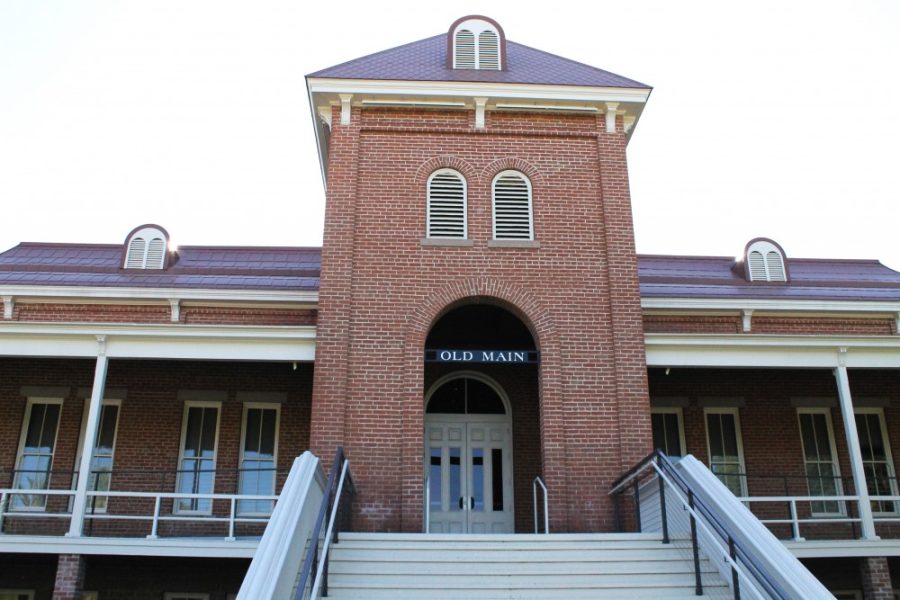Alec Scott
The primary goal of a college campus is to create a self confident atmosphere of expression, be it political or otherwise. The protection of free speech and a recognition of the right of protest are both the key elements of this aspiration. First Amendment rights are integral to foster a University open to new ideas, welcoming towards controversy, and eager to confront the difficult questions facing the student body and the nation at large. Charging students for exercising these rights does nothing but put our students on edge, demonstrate that their rights are far weaker than they thought possible and throw our dedication to discussion right out the window. We must protect our First Amendment rights, not only for the students right to protest, but for counter protests, open discussions and the right of the politically unpopular to speak. Without these rights, our campus will become a sterile zone of the politically safe. By doubling down in our protection of the rights of our students, our university will not only reaffirm its dedication to the free expression of opinions, but send a message out to other campuses that punishing protest is not the way to encourage understanding between the armed political camps.
Anika Pasilis
The First Amendment is heavily debated about. You can’t change it based on what you like or don’t like about a movement or protest. Whether or not you agree with the border patrol protestors, they have a right to protest and that should be respected. Obviously the way they started it by going inside the building is probably how the university determined it could file charges against the two people in question. The UA has a tradition of protecting free speech and I don’t see why that should end now. The political climate is incredibly volatile, but free speech is something we now come to expect both at the university and in life.
Mikayla Balmaceda
I believe that the First Amendment is what allows American citizens to be who they want to be, say what they want to say and believe in what they want. I see the First Amendment as the foundation of what it’s like to be as a citizen in America. We have the freedom of being who we want to be. I don’t think that there should be any extra regulations regarding any of those freedoms we are guaranteed in America. Colleges are supposed to push us to be the best versions of ourselves, and with regulations they could take that away from us. There are many ways people abuse the First Amendment and loop holes of bad things that can happen that people can get away with due to the First Amendment. Maybe instead of regulating our rights, colleges can better explain what those rights mean and teach better how to understand and not abuse them. Because rules and regulations sometimes are motivation enough for people to push their luck with them.
Maya Noto
It seems as the weeks pass, the issue of speech and expression in the United States snowballs. Now, the issue is three-fold– we have ourselves a snowman of speech. The head of the issue, with a corn cobbled pipe and a button nose, is asking what kind of expression is allowed in public spaces. The middle, maybe outfitted with a cozy scarf and two twig arms, is the issue of what kind of expression is allowed in schools, both secondary and Universities alike. And, the bottom of it all– who is even right in the first place? The issue of free speech will continue to snowball until as a community we accept that there is only one answer. The free exchange of ideas is the cornerstone of democracy and progress, and to censoring certain groups over others takes them out of the conversation altogether.
Selena Kuikahi
To answer this question, it is important to keep in mind the multidimensional facets of universities. The University of Arizona serves as not only a public space, but a home for many of its students. What a college, in general, serves to do is to create an atmosphere of free interactions and discussion amongst its population. Within this interactivity creates room for hateful speech. There is a historical importance for the establishment of safe spaces on college campuses. Although it is crucial to allow students safe spaces, I believe that it is also crucial to allow for situations and discussions that would challenge the understanding of students’ stances on various topics. With that, contributions should be respected but dignity cannot be undermined. There is a fine line between spewing an unwarranted opinion and hate speech. As far as further regulating speech on campus, I don’t think that the students would be of any benefit because it would compromise how they are able to express themselves. You cannot exclude people from contributing because you think that their ideas are invaluable – there is always an educational opportunity present, no matter which party benefits. As long as there is an underlying understanding between hate speech and free speech, then our current regulations should be sufficient.









